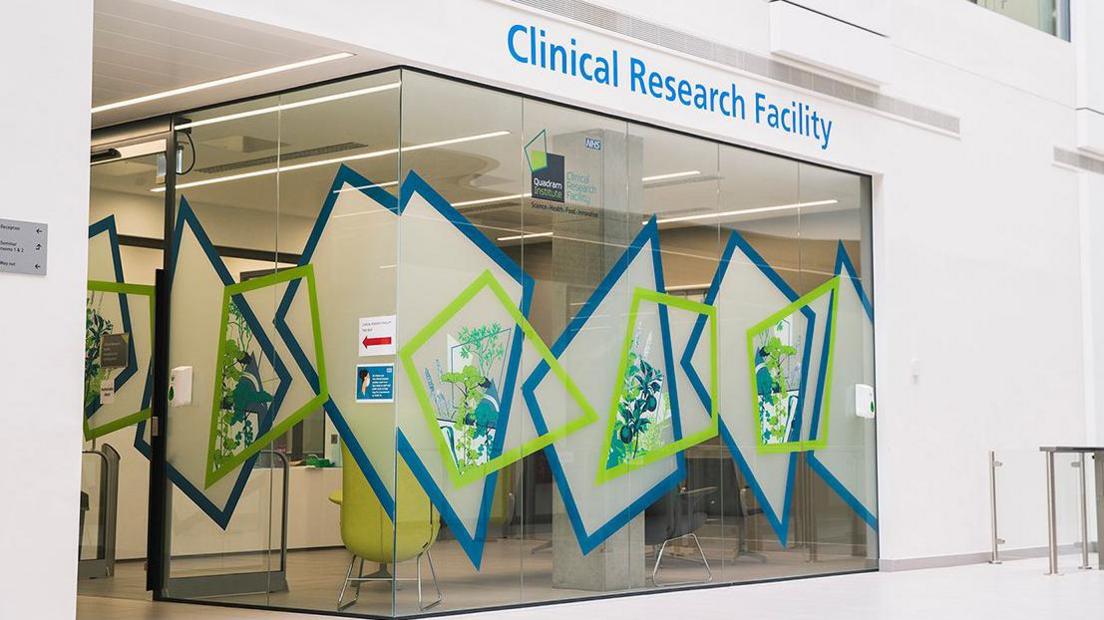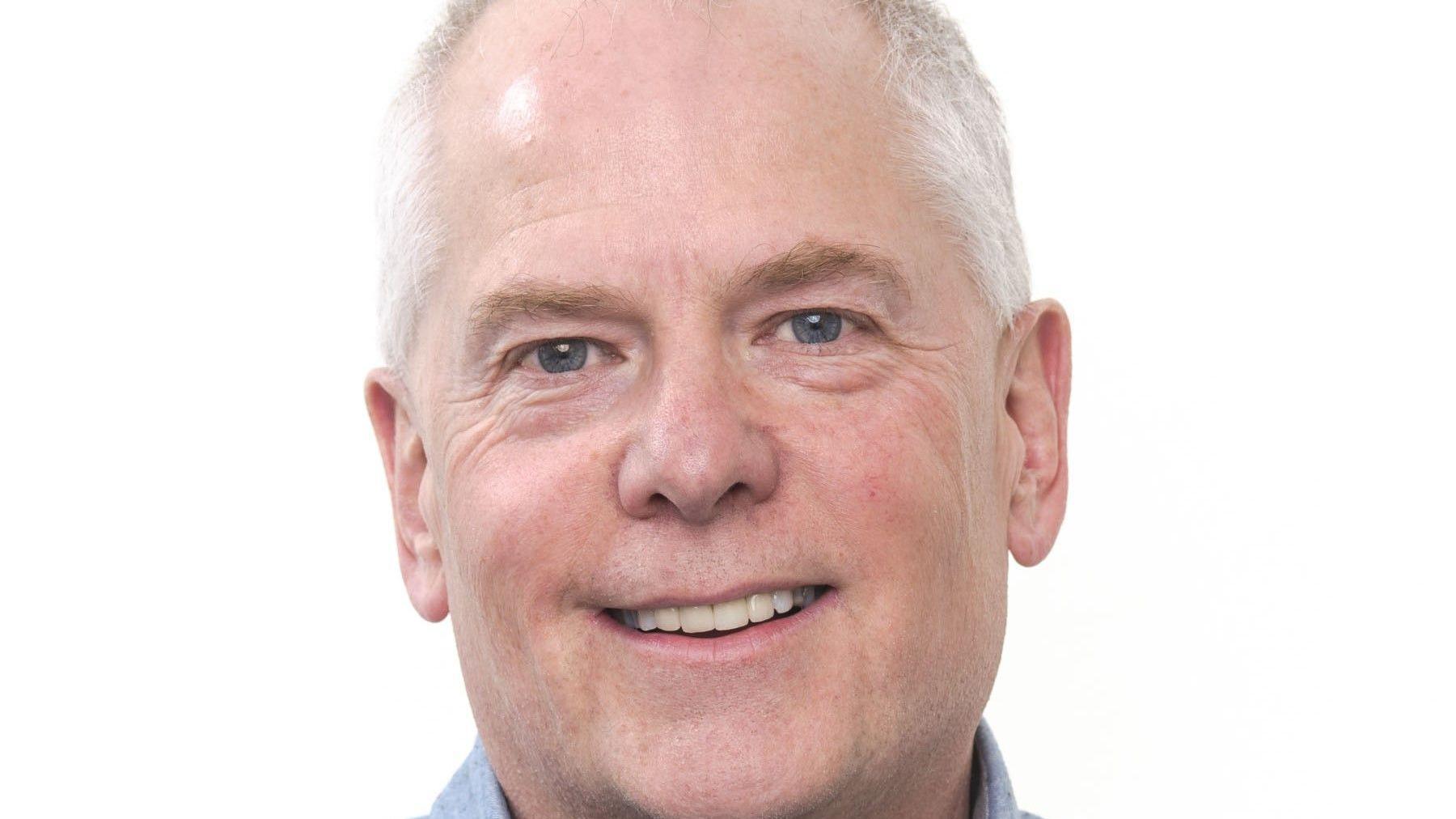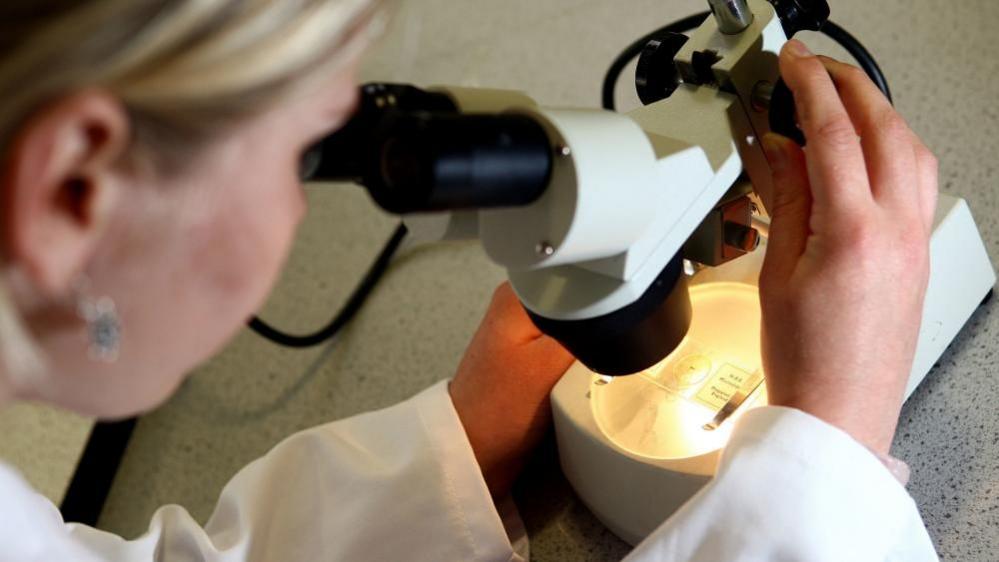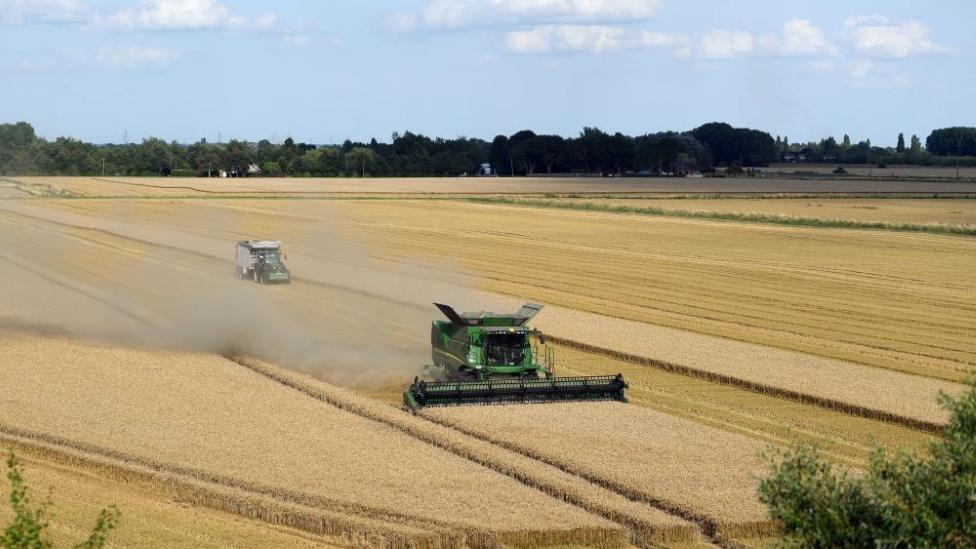Scientists exploring dementia follow gut instinct

Scientists at the Quadram Institute are looking at links between gut microbes and dementia
- Published
Scientists are investigating the link between microbes found in the gut and dementia.
More than 250 people have taken part in a study being carried out by specialists based in Norwich.
Researchers at the Quadram Institute, and the Norfolk and Norwich University Hospital, are looking at ways of slowing the progress of diseases such as dementia.
They think gut microbes, external might play a key role in maintaining the health of the mind.
"The study is investigating gut microbes and the role they may play in healthy ageing and, in particular, declining mental health and the risk of developing dementia," the centre explained in a online post.
"Changes in gut microbe populations have been linked to many other conditions including obesity, cancer and Alzheimer's disease and Parkinson's disease."

Prof Simon Carding is looking at ways of fighting diseases such as dementia
Quadram Institute group leader Prof Simon Carding, external told the BBC that researchers were looking at ways of fighting diseases such as dementia.
"We are interested in knowing if we can help slow or even maybe reverse some of the effects that cause or lead to, for example, dementia," he explained
"And one area we are particularly interested in is the microbes that live in our gut.
"We believe that they can play a key role in maintaining the health of, not just the body, but also the mind, mental health.
"And that is through what we call gut brain access, which is a means by which the gut can communicate with the brain."
A spokesman for the centre said about 280 people had been involved after it asked for volunteers aged over 60.
Prof Carding said researchers were looking at ways gut microbes changed as people aged.
He said volunteers were being studied over several years and the project was long-term.
Similar studies had already been carried out on mice.
Prof Carding said specialists might be able to combat change, and illness, by altering diets or transplanting new microbes from healthy donors
He added: "I think there is real potential here to make an impact on some of the diseases that affect us with ageing."
Funding had been provided by the Biotechnology and Biological Sciences Research Council (BBSRC), he said.
Get in touch
Do you have a story suggestion for Norfolk?
Follow Norfolk news on BBC Sounds, Facebook, external, Instagram, external and X, external.
Related topics
More related stories
- Published29 May 2024

- Published23 February 2024

- Published26 May 2023
